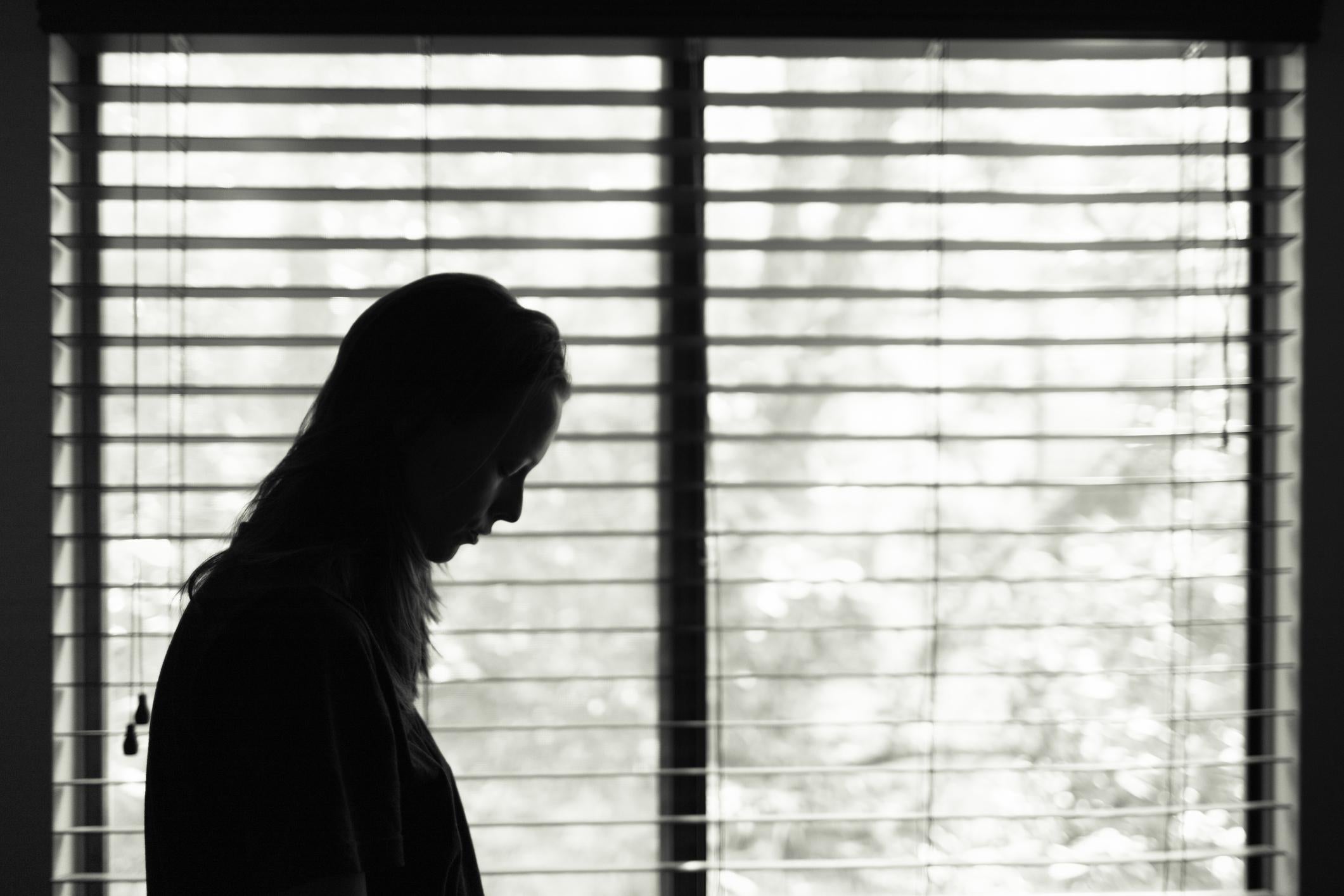For victims of domestic violence, the England final isn’t something to celebrate
For many women across the UK, big sporting events like this can have a different meaning: a hurricane of emotional upheaval, a catalyst in fuelling violence behind closed doors, whether they win or lose


For many of us, the rare excitement and enthusiasm of England reaching the Euros 2020 final has already kicked in – it certainly has for me and my family. But not everyone will be feeling the same way – for many women across the UK, big sporting events like this can have a different meaning: a hurricane of emotional upheaval, a catalyst in fuelling violence.
My WhatsApp notifications were already pinging in full force as friends and family asked what my plans were for watching the match. “Shall we do it at yours?” one message read, while another suggested we “go out and make the most of it”. Scrolling through the tirade of “it’s coming home” texts, I saw it – the message from a female friend I’d been expecting, and dreading, since the last game.
I’d already noticed her unusual desperation for wanting England to win against Denmark. It rang alarms because it felt different to the genuine, “loving football” kind of hope – there was a distinct tone of nervousness. It was happening again, I knew it. “Are you hosting the final at yours? I’d rather be out of the house this Sunday and let him get on with it.” This was all the confirmation I needed.
Huge events like this are few and far between, a chance for us to create happy memories. Watching the game with loved ones would seem the most obvious thing to do, but not for her. She’s experienced several violent episodes of rage – the semi-finals were fine, her family stayed over. But on the first game he’d had way too much to drink and grabbed her by the throat after she was late home. She felt too scared and too guilty to report it – and now she’s worried about the final.
Her family tell her to “deal with it” and say she needs to be less confrontational; and he always apologises after. But knowing that my friend is going through this breaks my heart. Her mental health is suffering and she is losing self-confidence, too.
When she messaged me about coming over for the final, I wrote back to tell her immediately that she was always welcome, but I had to try not to sound so concerned. I’ve tried the straight-talking approach before, but it only backfired badly and resulted in her distancing herself from me. I don’t feel I can report it on her behalf because of the impact it could have on her. She’s not ready yet and if I push it, she stops communicating with me. But I refuse to talk to him anymore and consequently our friendship has suffered.
Like anyone seeing friends on match days, it’s so easy for us all to be busy making arrangements, getting drinks and snacks and rushing around to get things organised – and to forget about those individuals who will be experiencing anxiety, internal turmoil and immense fear of what a game like this could also bring with it.
Research tells us that pre-existing patterns of abusive behaviour are often compounded by extreme emotional triggers – football matches do this very thing. Studies have shown that if you take already violent behaviour seen in a partner, increase alcohol intake and add an emotional trigger, it can result in serious violent afflictions in the home. Domestic abuse incidents surged by 38 per cent when England lost in previous world cups, and by 26 per cent when the team won or drew a match. A caption that went viral in 2018 – “No one wants England to win more than women” – was published by domestic violence charity Pathway Project in an attempt to raise awareness on this issue.
Today as England makes history playing in the final against Italy, we all need to be aware of the sad reality of what will go on behind thousands of closed doors, up and down the country; and stop masking it behind the build-up and hysteria of potentially winning a trophy. I certainly can’t forget it – it’s happening to one of my friends, but I can reflect on how to help her further.
I’ve had open conversations with her and I’ve even suggested independent help – but she’s not ready for that yet. According to a recent study done by SafeLives.org, domestic abuse victims return to their partners five times before they finally accept help. I feel wretched that I can’t do anything to stop it, but knowing this information helps me understand the support she needs from me now.
If coming over to my house for the match will double up as a refuge for her that evening, as well as a chance to enjoy the final, then that is what needs to be done. I intend to enjoy my gathering on Sunday, revel in the rare camaraderie, all whilst knowing that I am able to help a friend – even temporarily – who would otherwise be facing this on her own.
Sunday will come, England will play and for the majority of us the outcome of it will not conclude with violence and abuse. Yet, for a huge number of women in the UK, England winning is more than just a national game or a celebratory trophy, it is about their safety. It’s time we think seriously about how to give domestic abuse the “red card”.
Join our commenting forum
Join thought-provoking conversations, follow other Independent readers and see their replies
Comments
Bookmark popover
Removed from bookmarks